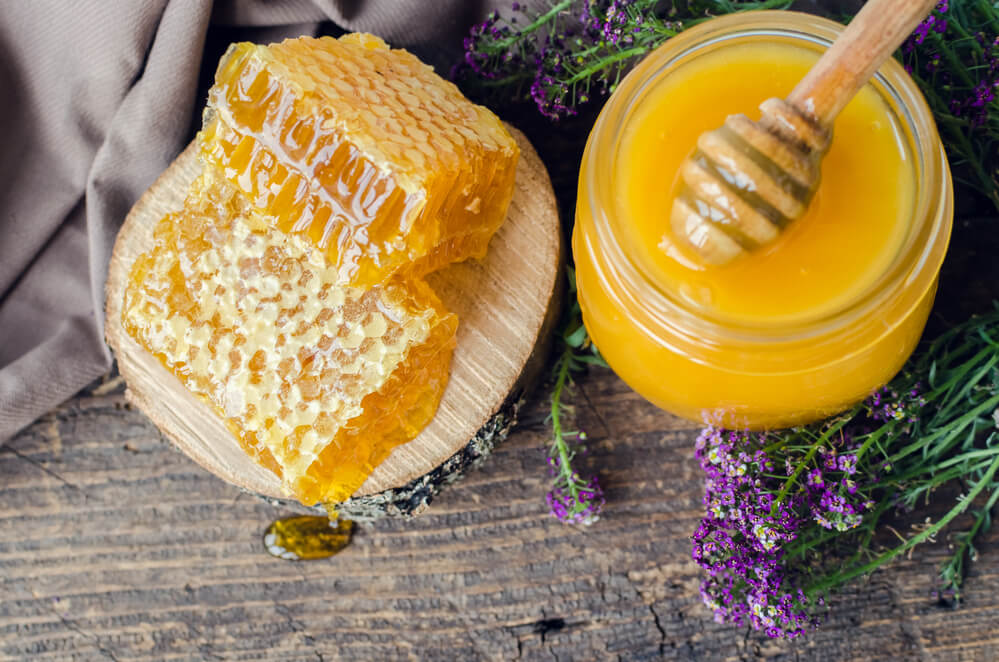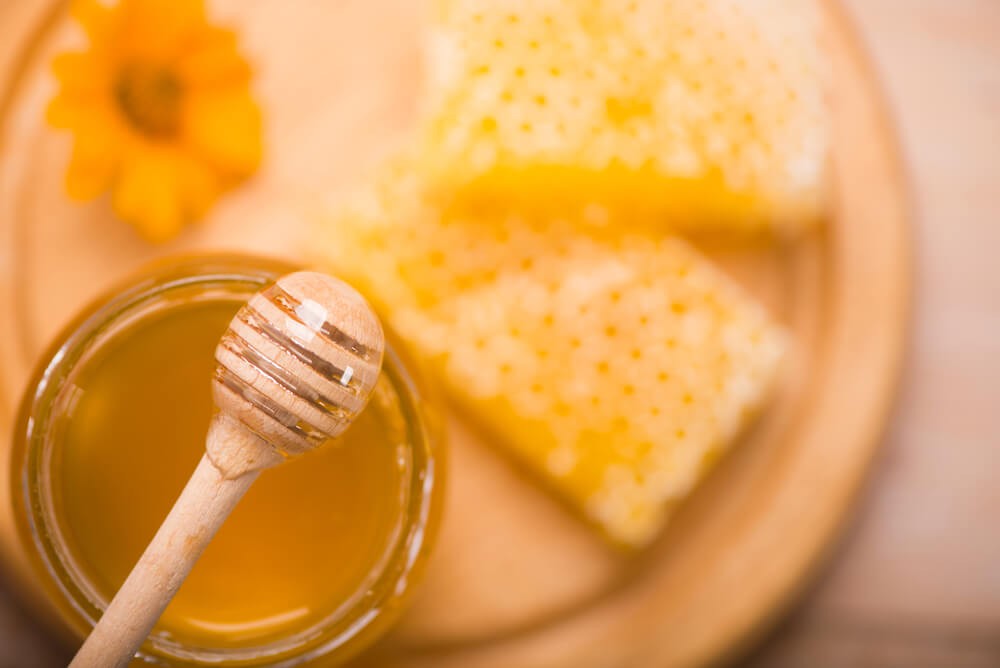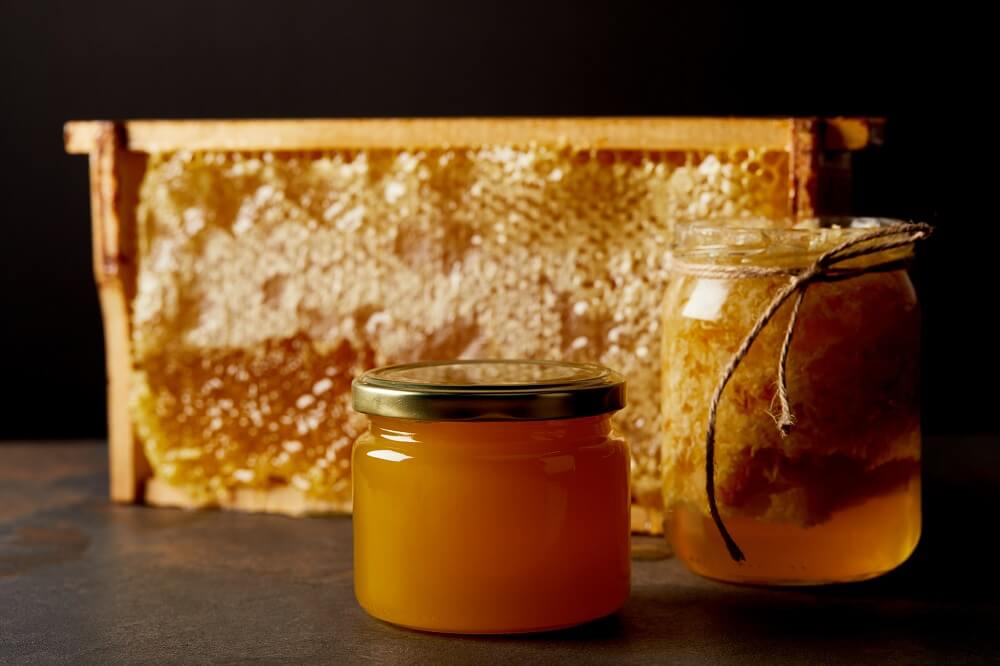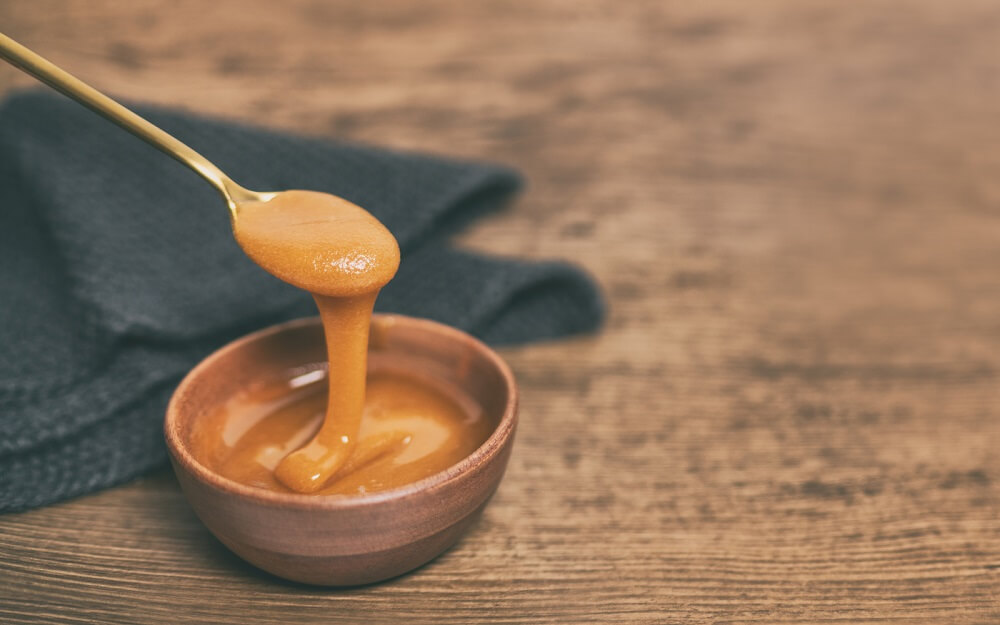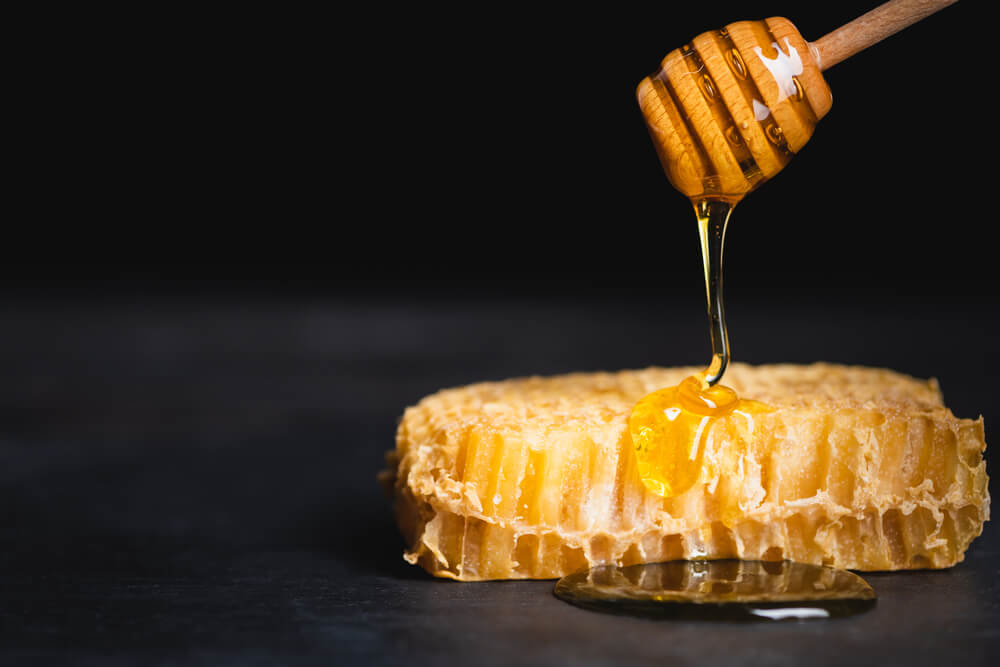Table of Contents:
What is Sunflower Honey?
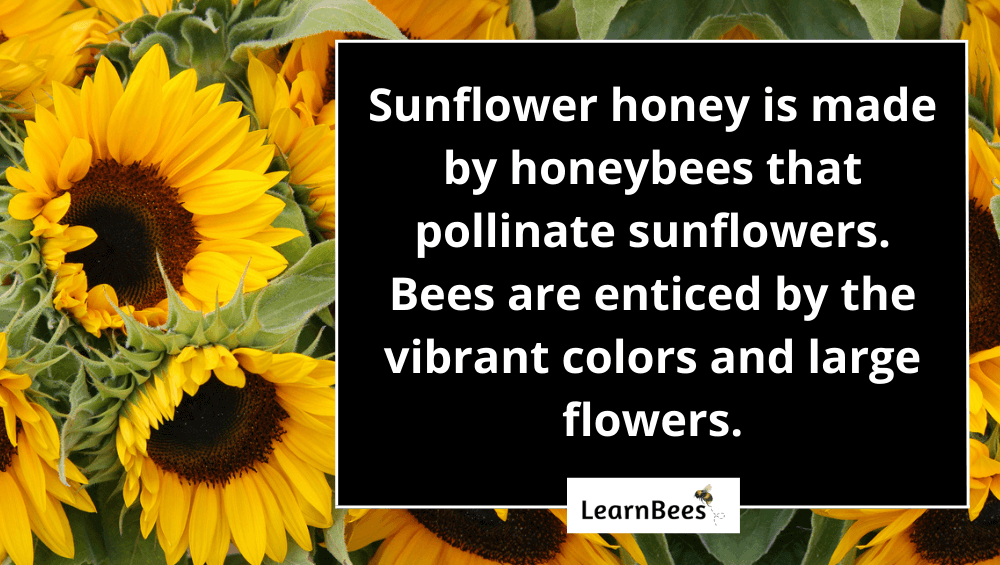
Sunflower honey is produced by honeybees that feed on sunflowers.
Sunflowers are native to North America. They bloom from summer to fall, with a single flowerhead producing up to 1,000 seeds. Thanks to their large blossoms and vibrant coloring, sunflowers attract honeybees like a magnet.(1)
Speaking of honeybees, you might be wondering:
What does sunflower honey taste like?
Raw sunflower honey has a sweet flavor with floral undertones. The taste is rich and smooth, making it delicious on its own or paired with other foods. The color is a medium golden shade.
Even better?
Honey has antibacterial, antiviral, and anti-inflammatory properties. Because of this, honey has been successfully used to treat skin conditions and upper respiratory infections in clinical settings.(2, 3, 4)
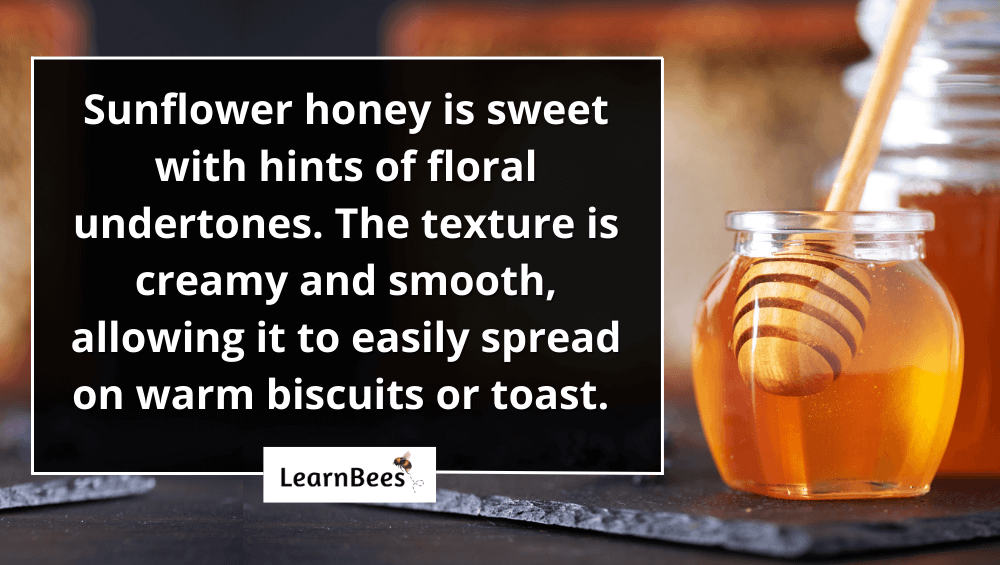
But here’s the thing:
These health benefits come from raw honey.
Raw sunflower honey is unprocessed and unheated. It’s honey left in its natural state, just how the honeybees created it.
Why does this matter?
Because the FDA issued a statement saying that overly processed honey isn’t genuine honey.(5)
This is because processed honey gets stripped of its antiviral, anti-inflammatory, and antibacterial properties once it’s pasteurized. What’s more, some honey manufacturers dilute their honey with unnecessary sweeteners.(6, 7)
What happens next?
The end result is no longer considered real honey.
So our suggestion is this:
Pick raw sunflower honey over the processed stuff. This will allow you to enjoy both the taste and the health benefits of pure honey.
And as a general rule, always look for honey bottles that say “raw” on them.
What Are the Benefits of Sunflower Honey?
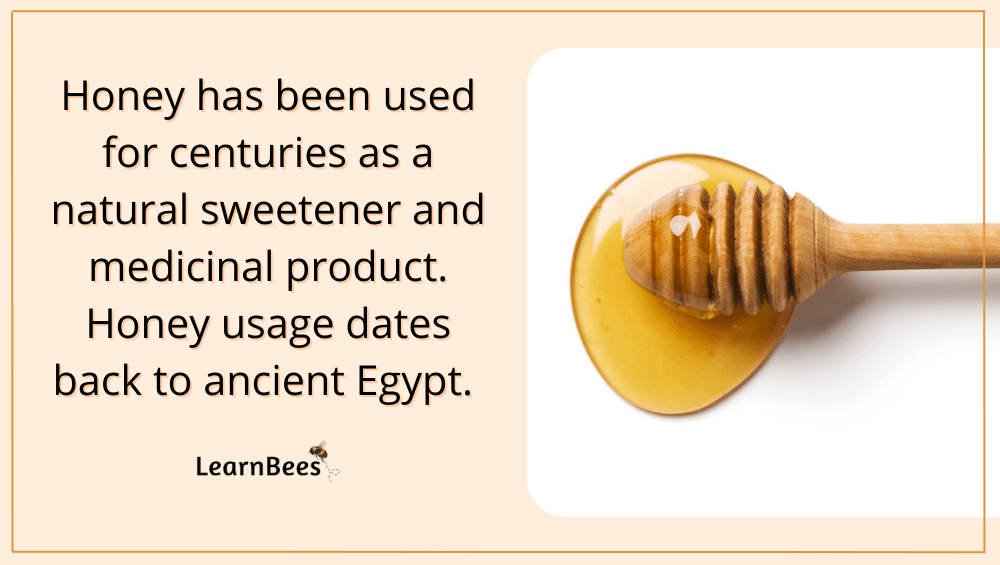
Sunflower Honey Nutrition
A single tablespoon of sunflower honey contains:
- Calories: 60 calories
- Protein: 0 grams
- Fat: 0 grams
- Carbs: 17 grams
- Sugars: 16 grams
So what are the sunflower honey benefits?
Let’s discuss some of them:
Benefit 1: Raw Honey is a Rich Source of Antioxidants
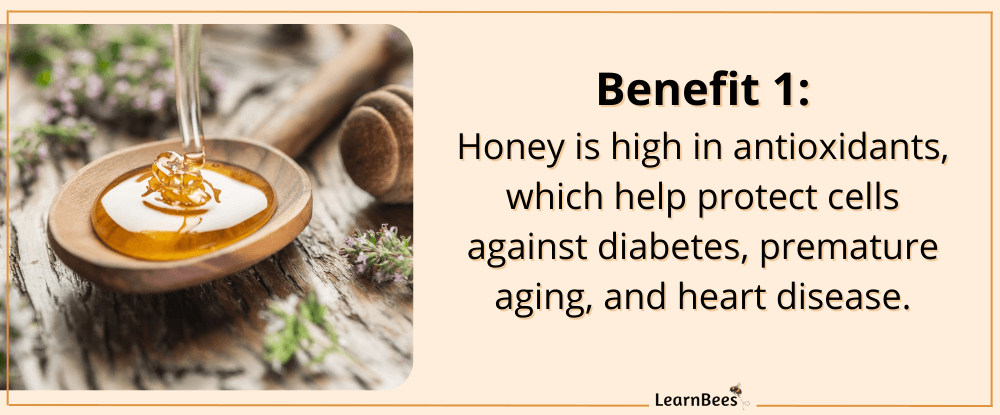
Flavonoids and phenolic acids are two types of antioxidants found in honey. Research shows that they may help protect against cell damage in the body. Cell damage can result in conditions such as type 2 diabetes, heart disease, and premature aging.(8)
Thanks to its antioxidants, raw honey has been shown to have anti-inflammatory abilities. As such, these are beneficial in protecting against several conditions linked to oxidative stress.(9)
Bee propolis and pollen are also present in raw honey, which may have additional health benefits. Raw honey has beneficial effects on the cardiovascular, respiratory, gastrointestinal, and neurological systems.(10)
Benefit 2: Raw Honey Can Treat Wounds
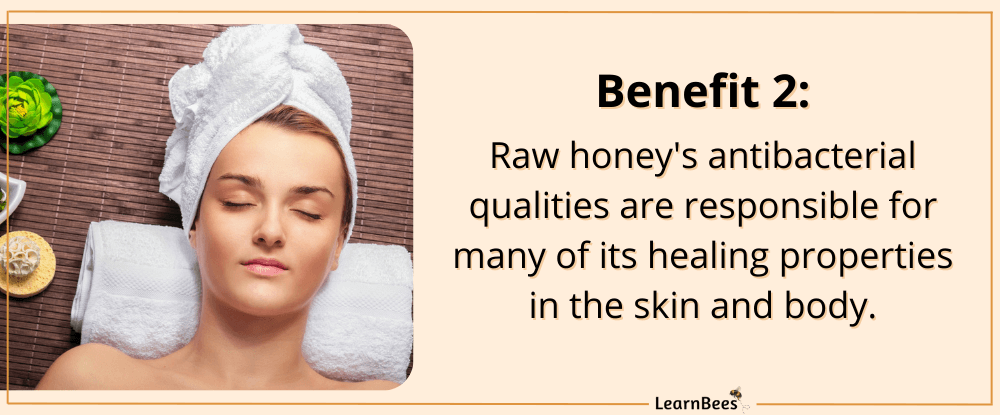
In clinical settings, raw honey has been used to treat wounds. This is due to its antifungal and anti-inflammatory properties.(11, 12)
It’s also been found to have antibacterial qualities, which can assist with slowing or preventing bacterial growth. One study found that honey might benefit the skin by helping wounds heal and inhibiting microbes.(13, 14)
Honey was discovered in research to aid in healing burns and sores that became infected after surgery.(15)
Studies have also shown raw honey helps with diabetes-related foot ulcers. Foot ulcers are open sores that generally occur at the bottom of the foot. These ulcers are serious and can eventually lead to foot amputation.
Surprisingly, honey had a 43.3% success rate for treating individuals with diabetes-related foot ulcers. In additional research, topical honey was found to heal 97% of participants’ diabetes-related ulcers.(16)
Honey has also been shown to help treat other skin conditions such as herpes lesions and psoriasis.(17)
Benefit 3: Raw Honey May Have Heart Health Benefits
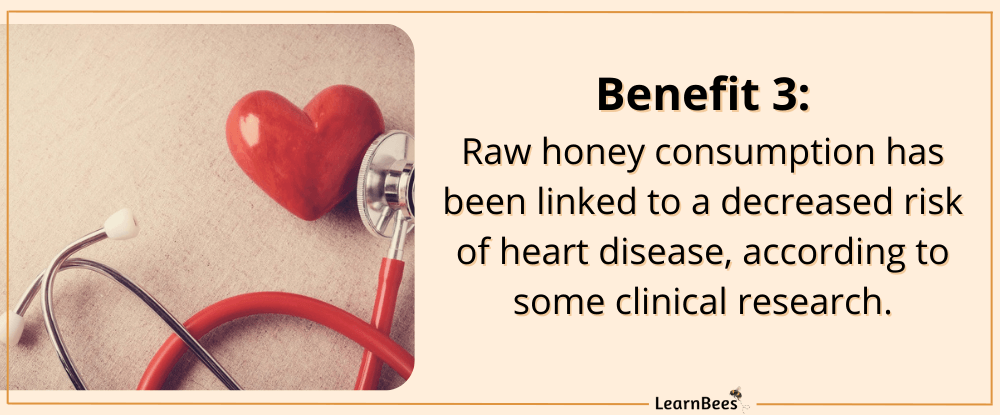
Raw honey has been shown in studies to aid in preventing heart disease.
Honey has been linked to a decreased risk of high blood pressure in women, according to one research study of over 4,500 people.(18)
According to one study, honey may boost your blood fat levels, control your heart rate, and lower blood pressure. As a result, this improves the health of your heart in general.(19)
According to a rat study, honey also protected the heart from oxidative stress.(20)
Honey contains propolis, a resin produced by honeybees from sap-producing trees. This compound has cholesterol-reducing and triglyceride-lowering effects.(21)
Benefit 4: Raw Honey is an Effective Remedy for Coughs and Sore Throats
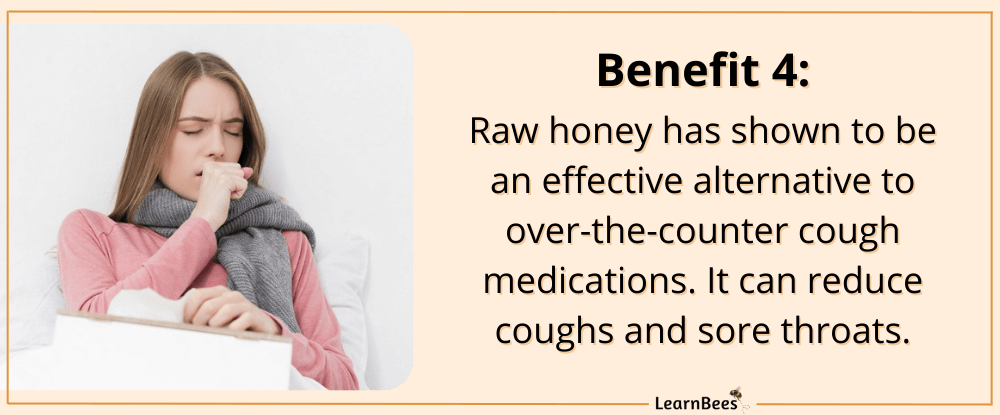
Upper respiratory illnesses are responsible for various symptoms, including sore throats and coughing fits. As a consequence, sufferers of these symptoms may have trouble sleeping.
Honey is effective against sore throats and cough, with evidence suggesting it can be a substitute for over-the-counter cough medicines.(22)
Honey has shown to be more effective than diphenhydramine (a cough medicine ingredient) in relieving cough symptoms.(23)
Honey can also assist in relieving coughs by reducing the length of coughing fits.
A review of studies revealed that honey might help with upper respiratory infections.(24)
Honey has also been found to improve sleep quality in children and parents with coughs, according to more research.(25)
Honey, unlike over-the-counter cough medications, does not have any negative effects. Honey should not, however, be given to infants under one year old because of the risk of infant botulism.(26)
With that in mind, honey can be safely consumed by children over 12 months old.
What Are the Risks of Sunflower Honey?
Honey is fine to consume for the majority of adults. Honey and honeycomb are considered low-risk foods.
So are there any side effects of sunflower honey?
Yes, there are two things to consider:
Risk 1: Raw Honey Can Harm Children under 12 Months
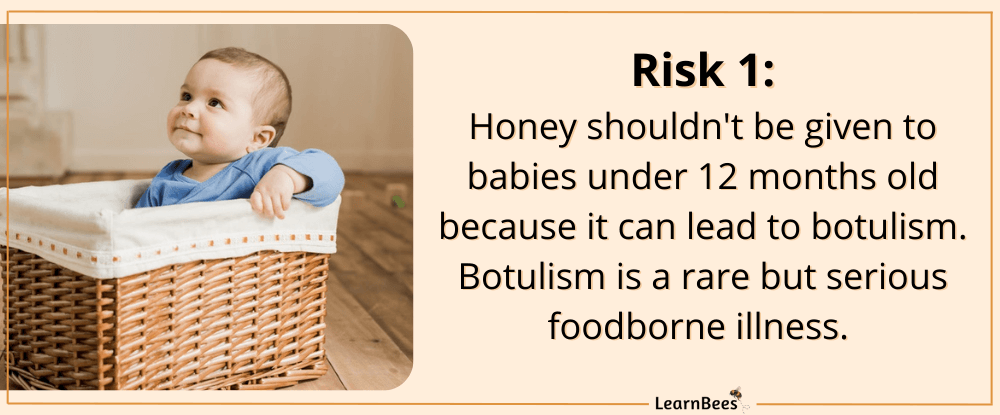
Honey should not be given to babies under the age of one because it poses a risk of infant botulism.
Infant botulism is a foodborne illness caused by the bacteria Clostridium botulinum. It can harm the nervous system, causing paralysis and respiratory failure.
Honey can be a source of botulism in infants. This is because their immune system isn’t developed enough to fight against the bacteria.
Risk 2: Honey Can Increase Blood Sugar Levels
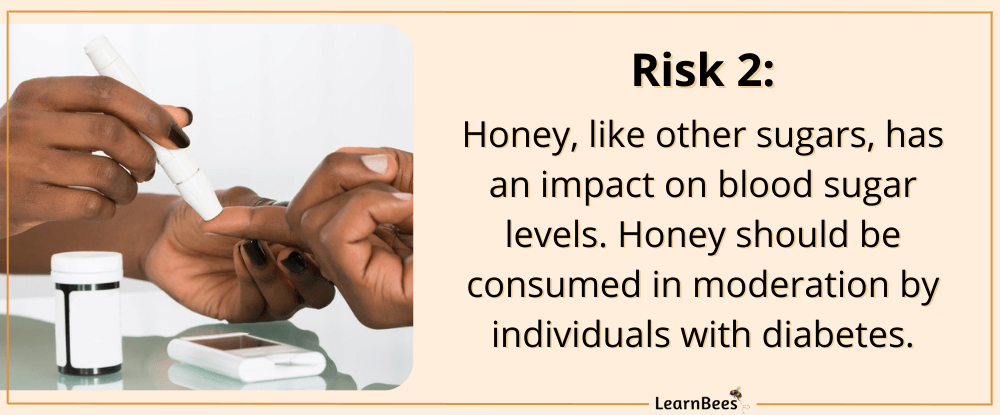
You might’ve heard that honey is a better choice for a sweetener than regular table sugar.
And while it’s true that honey has health benefits, it still needs to be consumed in moderation for people with diabetes.
Like all sugars, honey can spike blood sugar levels. It also contains carbohydrates that need to be considered, especially for individuals using insulin.
FAQs on Sunflower Honey
- Does sunflower honey crystallize?
- What is sunflower honey good for?
- What is the taste of sunflower honey?
- Is sunflower honey pure honey?
- Does sunflower honey come from bees?
- Can you buy sunflower honey with honeycomb?
- Is sunflower honey in tea good?
- Is sunflower honey vegan?
- Can sunflower honey be used for weight loss?
- What color is sunflower honey?
- How do you take sunflower honey?
- Is sunflower honey safe?
- Is sunflower honey beneficial to the skin?
- Where can I buy sunflower honey?
Does sunflower honey crystallize?
Yes, sunflower honey crystallizes. However, it can still be used even when it’s crystallized. To use it, simply place the honey jar in hot water and allow it to reheat the honey and dissolve the crystals.
Keep in mind:
Crystallized honey doesn’t mean the honey has expired. When stored correctly, honey is one of the only foods that never goes bad. Crystallization is simply a natural process that all types of honey go through.
Some types of honey, such as sunflower honey, crystallize faster than other types. But again, simply reheat the honey until the honey has liquified.
—> Go back to the FAQs on sunflower honey
More to Explore:
What is sunflower honey good for?
Sunflower honey has many potential health benefits, including reducing cough and upper respiratory infection symptoms, improving skin conditions such as diabetic foot ulcers, and healing other wounds like burns or cuts.
Additionally, sunflower honey is a good source of antioxidants and enzymes.
—> Go back to the FAQs on sunflower honey
More to Explore:
- The Brutally Honest Truth About Sour Honey
- Buckwheat Honey: Uses, Benefits, & Risks
- Can You Eat Honeycombs?
What is the taste of sunflower honey?
People often ask, “Do sunflowers make good honey?”
Yes, sunflower honey is delicious. The flavor is light and delicate, with slight floral undertones. It tastes good paired with fruits, tea, or simply on its own.
—> Go back to the FAQs on sunflower honey
More to Explore:
Is sunflower honey pure honey?
It depends.
Not all honey is raw and pure honey. You have to check the label to see if it’s raw honey. Raw honey hasn’t been heated, pasteurized, or filtered.
—> Go back to the FAQs on sunflower honey
More to Explore:
- The Top 3 Best Manuka Honey Brands
- Orange Blossom Honey: Uses, Benefits, & Risks
- Sourwood Honey: Uses, Benefits, & Risks
Does sunflower honey come from bees?
People often ask, “Where is sunflower honey found?”
Sunflower honey is made by honeybees that collect nectar from sunflower blossoms. The bees then take the nectar back to the hive, where they can use it.
Once back at the hive, the honeybees fan their wings to evaporate some of the water out of the nectar. This process turns the nectar into honey.
Honeybees eat their honey during the winter when there aren’t any flowers.
—> Go back to the FAQs on sunflower honey
More to Explore:
Can you buy sunflower honey with honeycomb?
Yes, the most common place to buy sunflower honeycomb is from a local beekeeper who sells it. You may also find it from a local farmers’ market or some online retailers.
—> Go back to the FAQs on sunflower honey
More to Explore:
Is sunflower honey in tea good?
Yes, sunflower honey in tea is delicious. The floral flavor of the honey complements the taste of many different varieties of tea. Sunflower honey may be used in place of sugar in black tea, green tea, and herbal tea.
Simply add a spoonful of honey to your cup of tea and enjoy.
—> Go back to the FAQs on sunflower honey
More to Explore:
Is sunflower honey vegan?
No, sunflower honey is not vegan because it’s made by honeybees.
—> Go back to the FAQs on sunflower honey
More to Explore:
Can sunflower honey be used for weight loss?
Honey is typically not recommended for weight loss if you’re limiting your sugar and carb intake. You can eat it in moderation if you choose. That said, there is no scientific research suggesting that honey aids in weight loss.
—> Go back to the FAQs on sunflower honey
More to Explore:
What color is sunflower honey?
Sunflower honey typically has a medium golden color. The shade of gold can vary slightly depending on where the honey was sourced. There are about 70 different sunflowers species, so the honey can vary somewhat.
—> Go back to the FAQs on sunflower honey
More to Explore:
- What is Longan Honey?
- Do Honey Pasteurization Ruin Honey?
- Allergic to Honey: Signs of a Honey Allergy + Treatment
How do you take sunflower honey? How do you eat sunflower honey?
Sunflower honey can be eaten in many different ways. It can be eaten straight from the spoon, used as a sweetener in tea or coffee, added to smoothies or yogurt, or used in baking.
Sunflower honey has a sweet and floral flavor that pairs nicely with smoothies. Simply add a tablespoon or two to the smoothie for additional sweetness.
—> Go back to the FAQs on sunflower honey
More to Explore:
- Honey for Skin Benefits: Directions, Uses, & Risks
- 8 Scientific Benefits of Raw Honey
- What’s the Difference Between Raw and Organic Honey?
Is sunflower honey safe?
Honey is generally considered safe for most individuals. Both honey and honeycomb are considered low-risk foods.
With that in mind, there are a few people who should be cautious when eating honey:
- Babies under 12 months old
- People with diabetes
- People with allergies to bee stings and pollen
For starters, honey should never be given to babies under one year old. This is because of the risk of botulism.
Infant botulism is a rare but serious illness caused by bacteria found in honey. A baby’s immune system isn’t mature enough to fight off the potential bacteria found in honey.
People with diabetes should also be cautious when eating honey because it can cause a spike in blood sugar levels. If you have diabetes, it’s essential to only eat honey in moderation.
Also, people who suffer from bee stings or pollen allergies should be cautious when consuming honey. There may be a risk of having an allergic reaction to the honey. Honey is made by bees and can contain small traces of pollen.
If you have any concerns, it’s always best to speak with a doctor first.
—> Go back to the FAQs on sunflower honey
More to Explore:
Is sunflower honey beneficial to the skin?
Yes, raw honey contains antibacterial, anti-inflammatory, and antifungal properties. These properties make honey a potential treatment for wound healing, acne and eczema, and other inflammatory skin conditions.
—> Go back to the FAQs on sunflower honey
More to Explore:
- Why is Manuka Honey So Expensive?
- Honey For Allergies: Is it a Potential Cure?
- Fermented Garlic and Honey Recipe
Where can I buy sunflower honey?
Depending on where you live, you can potentially buy sunflower honey from a local beekeeper or from a farmer’s market. You can also buy sunflower honey from online retailers.
But keep in mind:
Try to choose sunflower honey that says “raw” on the label. Raw honey is natural honey without artificial sweeteners or ingredients. As such, it maintains all the health benefits.
